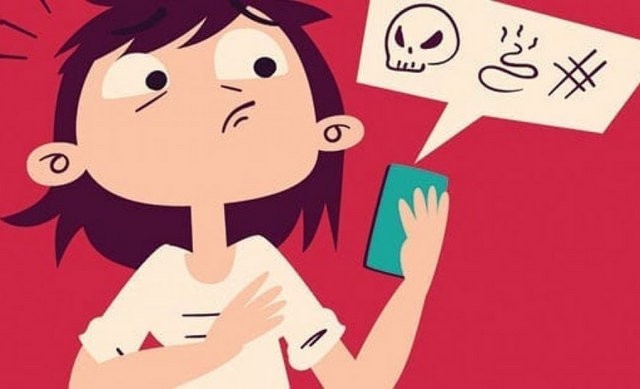
Full transparency: I have tattoos, and I’m actively planning to get more. But I need to be honest about why this is the case. It’s not for art, self-expression, or anything uplifting. It’s because I don’t feel like I’m enough in some aspects of my life (more on this shortly), and so I try to compensate by doing something bold and permanent.
I choose my words carefully here—especially because I claim to be one of the happiest people in the world, which I say that without any intention to gloat. Yet, deep down, I still wonder: Will tattoos truly address the aspects of life I hope they will?
Let me explain. Scientifically, the number of tattoos someone has is correlated with higher rates of anxiety, depression, and negative emotions. In other words, the more tattoos someone has, the more likely they are to be struggling emotionally.
Of course, most people struggle to be happier—or at least less unhappy—on some level, but not everyone gets a tattoo. They cope in other ways: shopping, drinking, drugs, chasing thrills, buying the latest iPhone when the old one works just fine, dyeing their hair, blasting loud music, binge-eating, gambling, and much more. These actions are often attempts to create meaning or positive emotions in our lives.
But here’s the question: If someone were 100% happy, would they feel the need to get tattoos, drink, take drugs, or do anything else for that matter? As an authority on happiness, I can say with confidence that the answer is “no.” Happy people walk, talk, and act completely differently compared to their less happy counterparts, primarily because they don’t need to engage in feel-good behaviors, as they already feel good. This is great because it reflects in their mental well-being, health, social skills, work performance, money in their bank account, and virtually every other aspect of life—science confirms that happy people outperform their more negative counterparts in almost every way.
And this brings me back to my urge to get more tattoos. Even though I’m generally happy, I still feel the need to improve other aspects of my life—whether it’s self-expression, financial well-being, overall enjoyment, or social recognition. While I don’t do it solely for the sake of feeling good, I keep experimenting with different tools to make everything work just a little better.
This logic applies to almost anything. Take wealth, for example. Being rich doesn’t guarantee happiness, health, or good social skills, as many wealthy people still struggle in all these areas of life. This raises the question: Can money truly buy happiness? It can, but only to a certain point. Beyond that, it becomes exponentially harder to derive happiness from money, and it creates additional problems, such as trust issues, disingenuous relationships, fear of losing what you’ve gained, desensitization to life’s simple joys, growing egoism, and an endless urge for comparison.
In other words, you can be financially rich, but that doesn’t guarantee well-being in all other areas of life. In some cases, the pursuit of money can even harm your happiness, wellness, spirituality, and other aspects of life. This is why I recommend pursuing money only up to a certain point. Beyond that, it’s wise to focus on other areas of life to maximize personal well-being and enjoyment of life.
So yes, I’m happy—but what about the rest of my life? Am I not trying to make it better, too? At least, that’s what I tell myself.
I’m happy, but I also live in a society, which may be the biggest obstacle to my emotional well-being, as society often promotes unhealthy behaviors, which are at least partially—if not largely—responsible for the mental health epidemic we face today. These pressures can lead to impulsive decisions, like getting tattoos. Of course, I could choose other distractions: an expensive vacation, buying something new, or attending an event in the city. I know tattoos aren’t the only solution, and yet I still want them, almost like an addict who understands the harm but can’t resist anyway.
And the problem with tattoos? They’re expensive, and once you get one, the desire for more can feel addictive (I can attest to this), so no matter how many I get, they’ll never make me feel truly fulfilled. Tattoos can also distract from addressing deeper, core issues, and there’s always the risk of regret later in life. So when a friend without tattoos asked if they should get one, I didn’t hesitate: “No, you shouldn’t.”
I don’t need tattoos, but at the same time, I only live once, I already have a few tattoos, and playing it safe is a sure way to stagnate. Bold self-expression might reflect my personality, boost my confidence, and connect me with like-minded people.
Overall, if you have tattoos—or know someone who does—remember that tattoos won’t make you as happy as you think. In fact, they are more likely to reflect emotional struggles rather than resolve them. Like everything in life, tattoos have pros and cons, so if your goal is genuine happiness and fulfillment, they might not offer the best path forward. Instead, consider more sustainable strategies for well-being, like those described on this website.
Stay happy, but think twice about that next tattoo.















6 thoughts on “The Tattoo Paradox: Beauty or Hidden Sign of Struggle?”
Thanks for the piece; I enjoyed it. I have tattoos also – I love them, but they don’t materially change anything about the world I live in. I’m not worried about regret though – even of the couple that don’t look as good as I hoped because I love so many of the others. Its funny that I enjoy showing them off, even though they are only somebody else’s artwork on my skin!
Before getting my first tattoo, I came across a poll showing the same person with and without tattoos. The poll asked which look people preferred, and the results were almost evenly split—about 53% favored tattoos, while 47% preferred no tattoos. Since fewer than 50% of people have tattoos, I saw having one as a distinguishing feature, which is why I went ahead with it. Now, I feel that people treat me a bit differently because of my tattoos. I also think I act differently—with more confidence, perhaps, as making the decision to get a tattoo and sticking with it has made me feel more assertive, though, of course, I can’t confirm whether this is actually the case in practice.
“…but they don’t materially change anything about the world I live in.”
I would go as far as to say I don’t get them to be happy. Plenty of people get tattoos without the reason being they are unhappy. Even if the dopamine and chemical release plays a part. There are people who use other dopamine and chemical elements for recreational use and not because of an addiction.
To say there are a lot of unhappy people consciously or unconsciously does make logical sense however as most don’t get exactly what they want. Acceptance, appreciation and ambition plays a large part along with personality and how the individual processes their emotions about ‘their picture’ whether by completly internalizing them or expressing them.
But we could post the same stuff all day everyday and many of us find we have our views and they won’t change. Whether to make a point or not…
I think some repeat for reasons that others either refuse to see and accept, some to see if others will repeat or not and some because…it could vary. There really are some of ‘Those’ out there.
I just like tattoos. Each a story. (Even the ones without a reason) Some permanent, some not. Memories and thier triggers come in all kinds of different ways.
What I found particularly interesting in your writing is the idea that everyone is unique, and sometimes the reasons behind people’s actions don’t need to make perfect sense—people do things simply because they want to. Is that correct? This perspective is fascinating, especially in today’s society, which offers countless options and encourages us to “express our uniqueness and personality.” Yet, from the standpoint of happiness, there are actions that are more likely to foster long-term well-being—what we might call “right” choices—and others that are less likely to do so. In a way, no action is inherently “right” or “wrong” by society’s current standards, which is why we see people doing almost anything these days. However, I do believe some actions are more conducive to long-term happiness than others. For example, tattoos can enhance well-being for some, though not for everyone—which is part of why I wrote this blog post. Thank you for your contribution!
This is a great article discussion. Sometimes tattooing can be a form of self harm. As a behavioral and mental health therapist, I have provided therapy to clients who did not cut or burn to distract from symptoms of trauma. They would get a tattoo and allow the pain from the procedure and healing reduce or avoid the symptoms of the trauma.
I’m so glad a fellow practitioner like you took the time to read my blog post—thank you, Patricia! You’re absolutely right. People cope and express themselves in so many ways: some cut, some burn, others get tattoos, while others turn to the gym or art. It’s a spectrum, ranging from less healthy to more healthy behaviors. Given the amount of suffering in the world, I believe tattoos can be therapeutic and are certainly a preferable alternative to self-harm like cutting or burning. That said, they still may not be as beneficial as other, healthier actions.